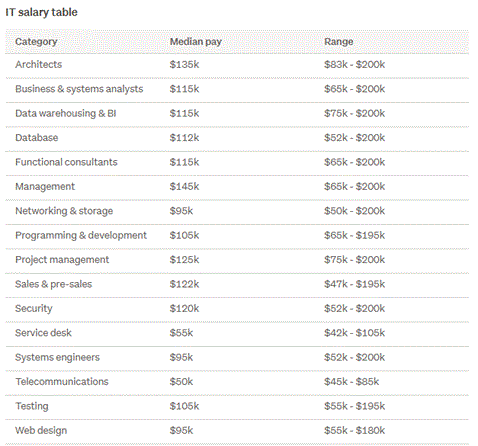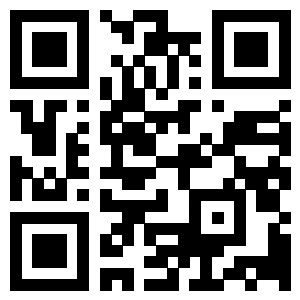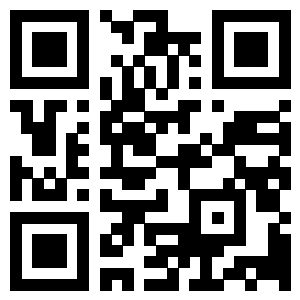2017年12月英语四级高频词汇详解(二)
1. scale n. [skeɪl] 大小,规模;等级;刻度
on a large /small scale 大规模地/小规模地 on the scale of 按照……的规模
例句:It is hard for me to tell the scale of our campus.
关于我们学校的规模,我说不上来。
2. temple n. [ˈtempl]庙宇
temple一般指佛教庙宇,而church则指基督教教堂,清真寺则称为mosque,Temple of Heaven 天坛
例句:Have you ever been to Lingyin Temple before?
你以前去过灵隐寺吗?
3. tedious a. ['tiːdɪəs] 乏味的,单调的
表示“乏味的”的词还有dull,boring等,他们的区别如下:
tedious 侧重指文章、演讲或演出等冗长乏味,也可指环境等的单调、沉闷,缺乏活力,使感到不舒服。
dull 指缺乏新鲜、吸引力或情趣而显得乏味、沉闷。
boring 指无精打采或不满意的感觉。
monotonous 指没有变化,重复单调的。
tiresome 指某物因看起来无穷无尽或毫无变化而令人厌倦。
例句:The mayor's speech is so tedious that people are absent-minded.
市长的演讲很无趣,人们都走神了。
4. tend v. [tend] 易于,趋向;照料,照管
tend to 倾向 tend on /upon 招待,服侍 tend the sick 护理病人
例句:He tends to give up.
他有点儿想放弃。
5. tendency n. ['tend(ə)nsɪ]趋向,趋势
tendency是根据tend变化而来的,表示趋向、趋势,trend也表示趋势,他们的细微区别如下:
trend 指事物发展总的方向、倾向或趋势。
tendency 比trend更抽象,一般指固有或习得的倾向性,强调没有外来的影响或干扰。
determining tendency 决定性趋势
例句:The tendency of today's young people to marry and bear children at late ages is very obvious in China.
在中国,年轻人晚婚晚育的趋势越来越明显。
6. ultimate a. ['ʌltɪmət] 极端的,最大的,最终的 n. 极端
ultimate既可以作名词,也可以做形容词。in the ultimate 在最后,终于 ultimate production 总产量
例句:His ultimate aim is to be an engineer.
他的终极目标是做一名工程师。
7. undergo v. [ʌndə'gəʊ] 经历,遭受
undergo过去式underwent,过去分词undergone。
表示“经历、遭受”的动词还有很多,一起来看看他们的区别吧。
undergo 多指遭受艰难、痛苦、不愉快或危险等事情。
experience 指亲身经受或体验某事。
sustain 指遭受痛苦或承受负担。
suffer 常与sustain通用,尤其指受到损害或伤害。
例句:He underwent a heart operation last week.
上周他接受了心脏手术。
8. abundant a. [ə'bʌnd(ə)nt] 丰富的,充裕的,大量的
与abundant一样,表示“充足的”得此还有以下几个,它们的区别是:
abundant 即为quite enough的意思,表示充足的,绰绰有余的,指数量非常多或充足有余。
sufficient 正正式用词,指为特定的目的和需要提供足够的数量,修饰名词时作前置定语。
adequate 表示在数量或质量上足以满足特定的标准,强调刚好足够,没有多余。
enough 普通用词,有时可与adequate互换,但只表示数量和程度。既可作前置定语,也可作后置定语。
plentiful 普通用词,指某物的数量多得称心如意,多描写实际事物。
例句:During this vacation, she has abundant time to travel around.
在这个假期里,她有足够的时间四处走走。
9. adopt v. [ə'dɒpt]收养;采用;采纳
adopt既可以表示采纳,采用,也可指收养。
adopt out 将孩子给人收养 adopt measures=take measures 采取措施
例句:He never adopts other's advices.
他从不听从他人的建议。
10. adapt vi. [ə'dæpt] 适应,适合;改编,改写 vt. 使适应
adapt与adopt长得很像,但意思完全不同。adapt作不及物动词时,通常与to连用。adapt oneself to 使某人自己适应
例句:The girl has adapted herself to the life in Britain.
这个女孩已经适应了英国的生活。
11. bachelor n. ['bætʃələ] 学士,学士学位;单身汉
bachelor表示学士,master表示硕士,doctor表示博士。
bachelor of science 理学学士 bachelor of arts 文学学士
另外,bachelor还表示单身人士
例句:I will get my bachelor degree this June.
我将于今年六月获得学士学位。
12. casual a.['kæʒjʊəl; -zj-] 偶然的,碰巧的;临时的;非正式的
表示非正规的、非正式的还有两个词irregular和informal,它们的区别如下:
casual 指不太注意场合、仪表等,随意性强。如a casual decision 草率的决定 casual clothes 便服
informal 指语言、穿着等比较随便,也指不举行任何形式或仪式的活动。如an informal visit 非正式访问 an informal style (日常使用的)语体
irregular 指不按常规、固定模式或计划做事。如irregular pattern 不规则的式样 an irregular liner 不定期航班
例句:Young people prefer casual clothes.
年轻人更喜欢穿休闲装。
13. trap n. [træp]陷阱,圈套 v. 设陷阱捕捉
be trapped in 陷入……中 be trapped 陷入困境,被困住
例句:The police set a trap to catch the murderer.
警察设下圈套捉拿杀人犯。
14. vacant a. ['veɪk(ə)nt]空的,未占用的
英语中empty、hollow都可翻译成“空的”,但这几个词意思有很大区别:
vacant 意为“空余的,无人占据的”,尤其指临时情况。
empty 意为“没有东西的,一无所有的”具有“空无一物”的隐含意思,通常与box、bag、room、house等搭配。
hollow 指“空心的,中空的,空洞的”既可以与实物,如tree、ball等词连用,也可与words、promise等词连用,表示空洞的,虚无的。
例句:Here is a vacant room, you can live in for some days.
这里有间空房,你可以住几天。
15. vacuum n. ['vækjʊəm] 真空,真空吸尘器
vacuum cleaner 真空吸尘器 in a vacuum 在真空中 vacuum-packed food 经过真空包装的食品
例句:Vacuum-packed food is easy to cook.
真空包装的食品做起来很方便。
16. oral a. ['ɔːr(ə)l] 口头的,口述的,口的
oral test /exam 口语考试 oral surgery 口腔外科
例句:I really want to practice my oral English.
我真的很想练习口语。
17. optics n. ['ɒptɪks] (单、复数同形)光学
fiber optics 纤维光学 electron optics 电子光学
例句:He is very interested in physical optics.
他对物理光学很感兴趣。
18. organ n. ['ɔːg(ə)n] 器官,风琴
organ我们平常见得比较多的是表示器官,也可引申为机构,它还可以表示风琴。
例句:Organ transplantation is a way to save one's life.
器官移植是拯救生命的一种方式。
19. excess n. [ɪk'ses; ek-; 'ekses]过分,过量,过剩
excess baggage 超重行李 in excess of 超过 excess supply 超额供给
例句:The staff number of this company has in excess of 800.
这家公司的员工人数已经超过800了。
20. expel v. [ɪk'spel; ek-] 驱逐,开除,赶出
expel是及物动词,后面可直接加宾语。be expelled from 被从……赶出
例句:Because of cheating, this boy was expelled from school.
因为考试作弊,这个男孩被学校开除了。
21. expend vt. [ɪk'spend; ek-] 消费
expend sth. 付出……,后面常跟名词effort,energy,time ,strength等。
expend sth. on sth.; expend sth.in doing sth. 用在,花在……
例句:Don't expend all your energy on such a useless job.
不要把你的精力全花在这无益的工作上。
同样表示花费、消耗的同义词有:cost、spend、take,它们的区别是:
cost 指花费时间,金钱和气力,主语只能是物,且无被动语态。
spend 指花费时间,金钱,主语只能是人,有被动语态。
take 指花费时间,气力,主语一般是物。
例句:You don't need to expend that much time in watching TV.
你没必要花那么多时间在看电视上。
22. expenditure n. [ɪk'spendɪtʃə; ek-]支出,消费;经费
public expenditure 财政支出 revenue expenditure 营业支出 capital expenditure资本支出
例句:The expenditure of money on weapons is very large.
购置武器的开支很大。
23. expense n. [ɪk'spens; ek-] 开销,费用
expense 和expenditure的区别:
expenditure 正式用语,多用在如“政府开支, 国防开支”等正式词语中。
expense 普通用语,但也可以做正式书面语。
例句:Expense allowances are apt to mean fiddling.
开销津贴容易造成弄虚作假。
24. expensive a. [ɪk'spensɪv; ek-] 花钱多的;价格高贵
表示价格贵的词还有dear、costly,区别如下:
dear 侧重指要价过高,或远高于公道、合理的价格,其反义词是cheap。
expensive 指物品的价格超过了它本身所值,或超过了购买者的支付能力。
costly 指物品价格高,通常是因物品稀少或珍贵所致。
例句:"They gad about Europe a lot, going to expensive restaurants and shows."
他们下高级馆子,享受高级娱乐,可把欧洲逛了个够。
25. expand v. [ɪk'spænd; ek-] 扩大,扩张;展开,膨胀
这个词和extend长得很像,extend指长度上面的延伸,expand含有膨胀的意思,多指面积、体积的增长。
例句:After such treatment the fabric is often found to expand on washing.
毛织物有时发现在洗涤之后会出现伸长现象。
26. expansion n. [ɪk'spænʃ(ə)n; ek-]扩大,扩充;发展,膨胀
after expansion 后期膨胀;expansion factor 膨胀系数;膨胀率
和extention的区别在于:extention指长度上的延长,伸展;expansion有膨胀的意思,比如snooker杆的加长杆就是extention,人口激增就用expansion。
例句:A rise in the temperature of the gas results in its expansion.
气体温度上升致使气体膨胀。
27. private a. ['praɪvət] 私人的,个人的
private和personal, individual 均含“个人的、私人的”之意的形容词,它们的区别是:
private 指属于私人所有或具有私营性质,以区别于集体或公共的,有时含不公开的意味。
personal 指属于或关于某人或某些特定的人,以区别于其他人。
individual 与集体的相对,指个别或个体的。
例句:He' s a rather private person.
他不太喜欢和别人交流思想感情。
28. individual a. [ɪndɪ'vɪdjʊ(ə)l] 个别的,单独的 n. 个人,个体
Individual作为形容时和peculiar, characteristic,distinctive一样都含“特有的、显示特征的”之意,但它们之间也有些区别:
individual 指特指的人或物,着重其与众不同,强调可将其区别出的品质与特性。
peculiar 侧重指某人或某物本身与众不同;也可指种族、民族或性别有其无可争议的特点。
characteristic: 侧重指具有区别能力的,典型的或本质的特征。
distinctive 突出与众不同的或令人称赞的个性或特征。
例句:It is the principle I contend for, not individual or private benefit.
我奋斗争取的是原则而不是个人的私利。
Individual作名词时指得是“个体”,这里强调它是与“家庭”、“团体”、“社会”等整体相对的一个概念,要注意不可将其广泛用作“人”的意思。
例句:The welfare of the individual is bound up with the welfare of the community.
个人的福利与社会的福利有着密切的关系。
29. personal a. ['pɜːs(ə)n(ə)l] 个人的,私人的;亲自的
personal allowance 计算所得税时的个人免税额 personal computer 个人计算机personal column (报纸上的)私人广告栏
例句:It's said that his visit is purely personal.
据说他的访问纯属私人性质。
30. personnel n. [pɜːsə'nel] [总称] 人员,员工;人事部门
personnel manager 人事主管人 personnel management 人事管理
field personnel 现场工作人员 flight personnel 飞行人员
例句:All the managerial personnel at the factory are hired on contract.
工厂所有管理人员都是聘用的。
31. grant vt. [grɑːnt] 授予,同意,准予
take for granted是固定表达,为习惯用语,指“将...看作理所当然”,如to take nothing for granted(不把任何事物看作是理所应当的)。 take sth for granted不可接宾语从句,一定要接时,需在take后加it作形式宾语。
例句:We took it for granted that you knew the whole matter.
我们以为你当然是知道所有情况的。
32. grand adj. [grænd]宏伟的,壮丽的,重大的
词义辨析:big, large, great, grand
big 常用词,使用广泛,较口语化。多指体积、重量或容量等方面的“大”,有时也用于描写抽象之物。
large 普通用词,含义广,指体积、面积、容量、数量以及程度等方面的大,具体或抽象意义均可用。
great 普通用词,可指具体东西的“大”,但更常指事物的重要,人的行为、品格的伟大等,带一定的感情色彩。
grand 侧重指盛大、宏大的、有气派。
例句:The Grand Design reached its rhetorical apogee.
宏伟计划达到口头上的高潮。
33. invade v. [ɪn'veɪd] 侵入,侵略,侵袭
例句:Wipe out any enemy who dares to invade our country.
消灭任何胆敢来犯的敌人。
例句:The town was invaded by reporters.
这个城市涌进了大批记者。
34. acid n. ['æsɪd] 酸,酸性物质 adj. 酸的;尖刻的
acid rain 酸雨 acid test 酸性测试 acid jazz 迷幻爵士乐
例句:An acid solution is concentrated when it has very much acid in it.
当酸溶液里含有很多酸时,它就被浓缩了。
例句:She uttered the phrase with acid sarcasm.
她以辛辣的讽刺口吻说这个词。
35. acknowledge v. [ək'nɒlɪdʒ]承认;致谢
词义辨析:acknowledge, admit, confess, recognize, concede
acknowledge 通常指公开承认某事的真实情况或自己的过错。
admit 强调因外力或良心驱使或经判断而明确承认,多含不情愿或被迫意味。
confess 语气较强,着重承认自己意识到的错误或罪行,含坦白忏悔的意味。
recognize 作“承认”解时,系书面用词,主要指合法的或外交上的承认,也指公认。
concede 指在事实与证据面前勉强或不得不承认。
例句:The critic should acknowledge the complexity and inherent ambiguity of the policymaker's choices.
评论者应该承认决策者作出抉择的复杂性及难以避免的缺乏鲜明性。
例句:We must not fail to acknowledge his services to the town.
我们必须感谢他对本市的贡献。
36. balcony n. ['bælkənɪ] 阳台
例句:As he came out on the balcony, she turned to him, her face alight.
当他走上凉台时,她转向他,脸色开朗起来。
例句:I'm sorry, all the balcony seats are gone.
抱歉,包厢的票都卖完了。
37. calculate vt. ['kælkjʊleɪt] 计算,核算
词义辨析:calculate, count, compute, reckon
calculate: 通常指要求细致精确和复杂的计算,以解决疑难问题,多用于自然科学、生产部门或要求专门计算的场合。
count: 指逐一计算而得出总数。
compute: 一般指已有数据的,较简单但数字长的数学运算。
reckon: 通常指较简单的数学计算,也可指心算。
例句:Engineers calculate the strains and stresses of a bridge.
工程师们计算桥梁的受压力度。
38. calendar n. ['kælɪndə]日历,月历
例句:A calendar hung against the wall.
墙上挂着日历。
例句:Our weather must not always be judged by the Calendar.
我们的季节不能总是靠日历来衡量。
39. optimistic a. [ɒptɪ'mɪstɪk]乐观
over-optimistic过于乐观的;optimistic estimate 乐观估计
例句:It would be wrong of me to paint optimistic picture.
如果我把情况说得很乐观,那就错了。
40. optional a. ['ɒpʃ(ə)n(ə)l]可以任选的,非强制的
optional word 任选字; 随意选择字;optional stipulation 选择性规定;optional sampling 任意抽样
例句:It is optional with you.
悉听尊便。
例句:If it is difficult to state definitely one or several ports, optional ports can be adopted.
假如难以明确写出一个或几个港口,就可以采用选择港这个办法。
- 相关阅读
-
2017年12月大学英语四级词汇表下载
2017年12月大学英语四级词汇表word下载 资料说明: 四级考试在即,你准备得怎么样了?现在新东方在线英语四级频道把四级词汇词
2021-10-12 -
2017年12月大学英语四级词汇带音标(大纲)
大学英语四级词汇是英语四级考试的基础,基础打不好的话听说读写都会有问题,英语四级备考需要花大量的时间去记英语四级单词。下面是
2021-10-12








